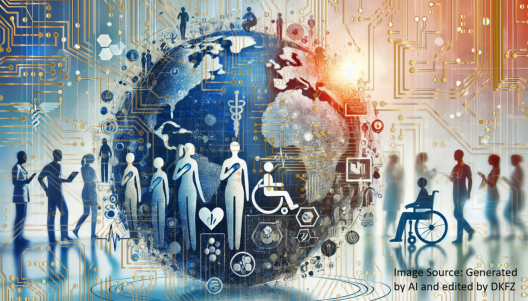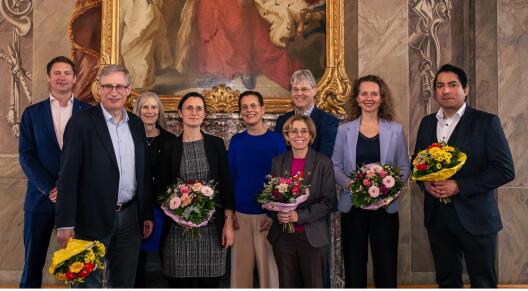Call for participation in the Alumni Project Week "Global Digital Health - Interdisciplinary Challenges from International Perspectives

Here is the chance to return to Germany, visit two fascinating research locations and engage in an interdisciplinary and international exchange on one of the most important scientific topics of our times! The project week is a collaborative initiative bringing together International Research Alumni and local researchers from 6 German partner institutions from 20 – 26 November 2025 in Cologne and Heidelberg. Apart of the organising hosts – the German Cancer Research Centre DKFZ in Heidelberg and the University of Cologne – Münster is among the participating universities, together with Heidelberg, Siegen and the Karlsruhe Institute of Technology (KIT). The focus of the meeting is to address the societal, developmental and global relevance of digital advancements in all health-related sciences.
Among these are disease prevention, diagnostics, medical care and therapy, as well as bio-medical informatics, ageing research, health policies and education, alongside their challenges and opportunities from a global perspective.
Alumni Researchers from developing, emerging, and industrialised countries are invited to apply. For successful applicants travel and lodging will be supported with a fixed sum. To be funded, it is a prerequisite that you are an international Alumna/i of Münster University. That means, the project is aimed at those, who conducted research at our university in the past and have spent at least 3 months in Germany as a part of their academic career.
Activities will include keynote lectures, discussion panels, interdisciplinary exchanges, lab tours and a cultural programme. The interactive and participatory design seeks to facilitate sustainable scientific transfer of knowledge, strengthen international and interdisciplinary collaboration, and enhance alumni connections with German research institutions.
For further clarifications contact Audrey Busch at the 'Researchers & Staff' department of the International Office via research.alumni@uni-muenter.de

